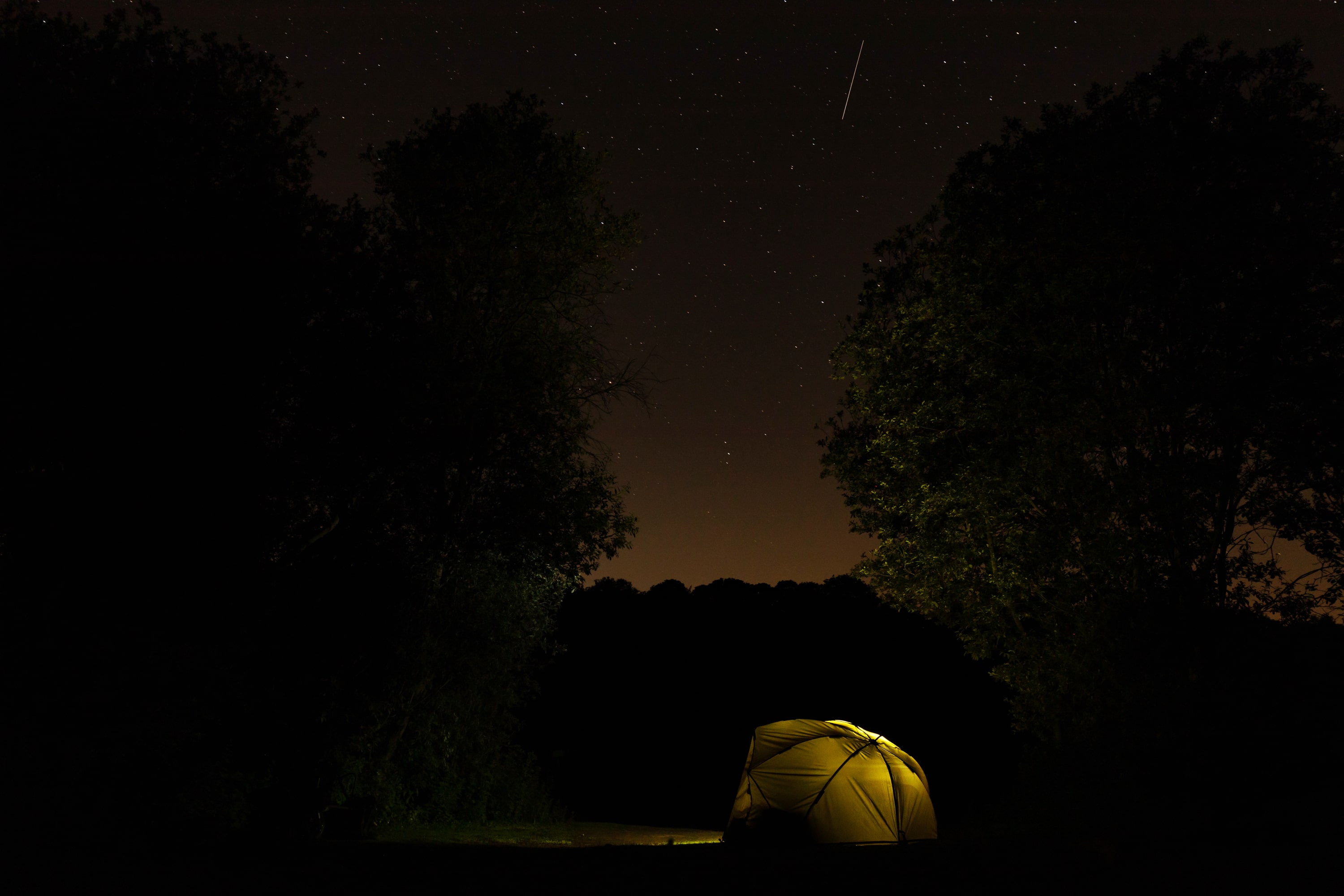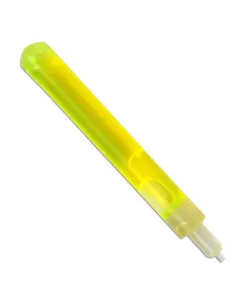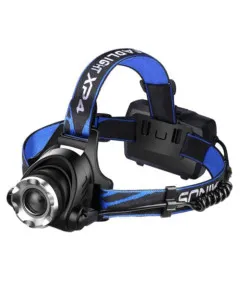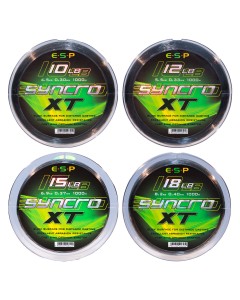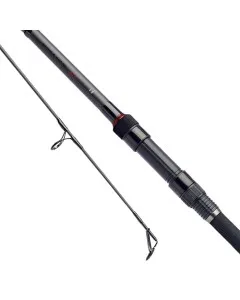A Comprehensive Guide to Summer Night Fishing in the UK
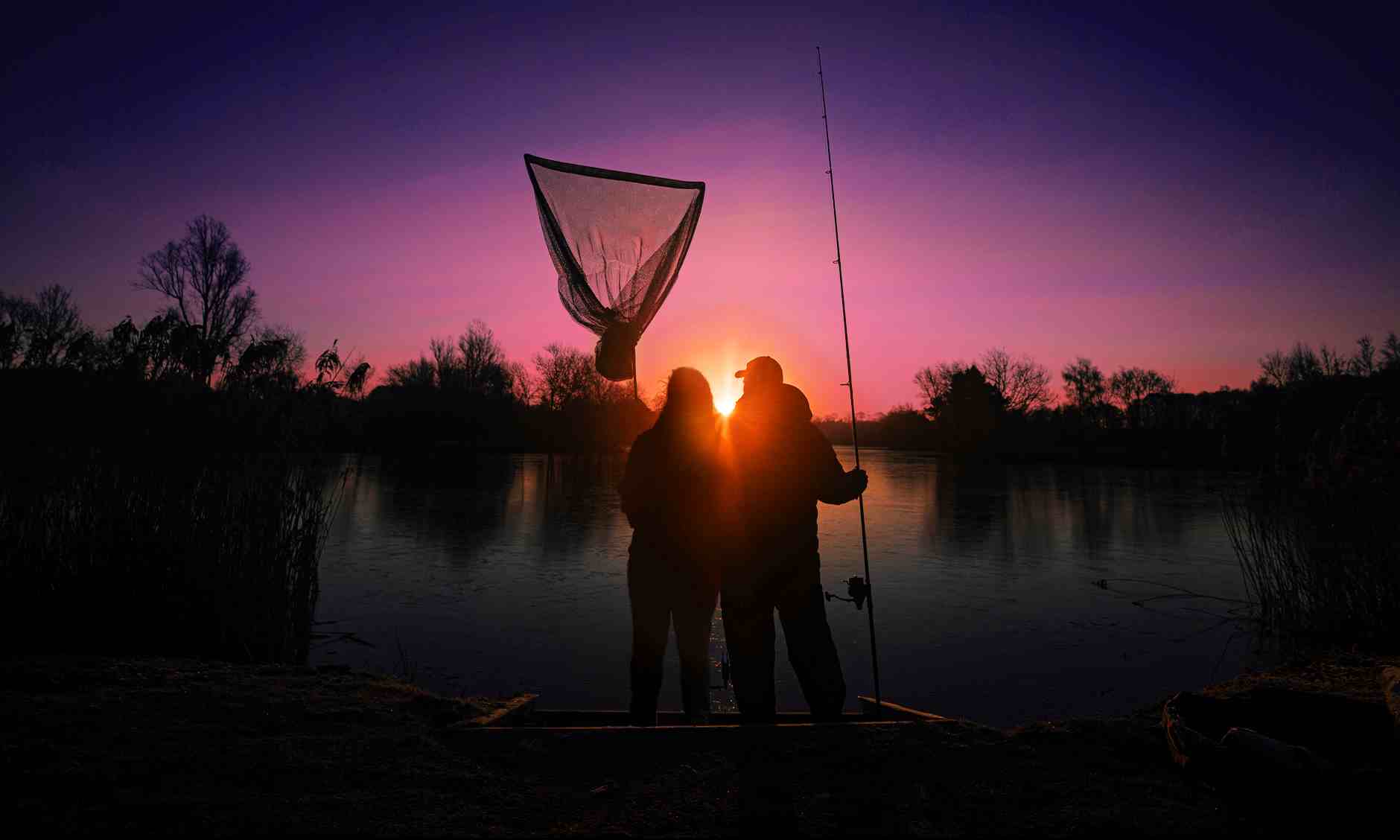
The mysterious allure of night fishing has captured the hearts of anglers all over the world. In the UK, summer night fishing provides a unique opportunity. Night anglers can escape the crowds and connect with nature under the cover of darkness.
From the thrilling chase of nocturnal fish to the tranquil serenity of the night. This comprehensive guide will explore everything you need to know about summer night fishing in the UK. Focusing on locations, species, techniques, equipment, and safety.
Is Fishing in the Dark better?
Fishing at night is unlike any other angling experience. The stillness of the water with the soft glow of the moon can create a peaceful atmosphere. Nighttime often brings different fish species to the surface, offering a new challenge for seasoned anglers.
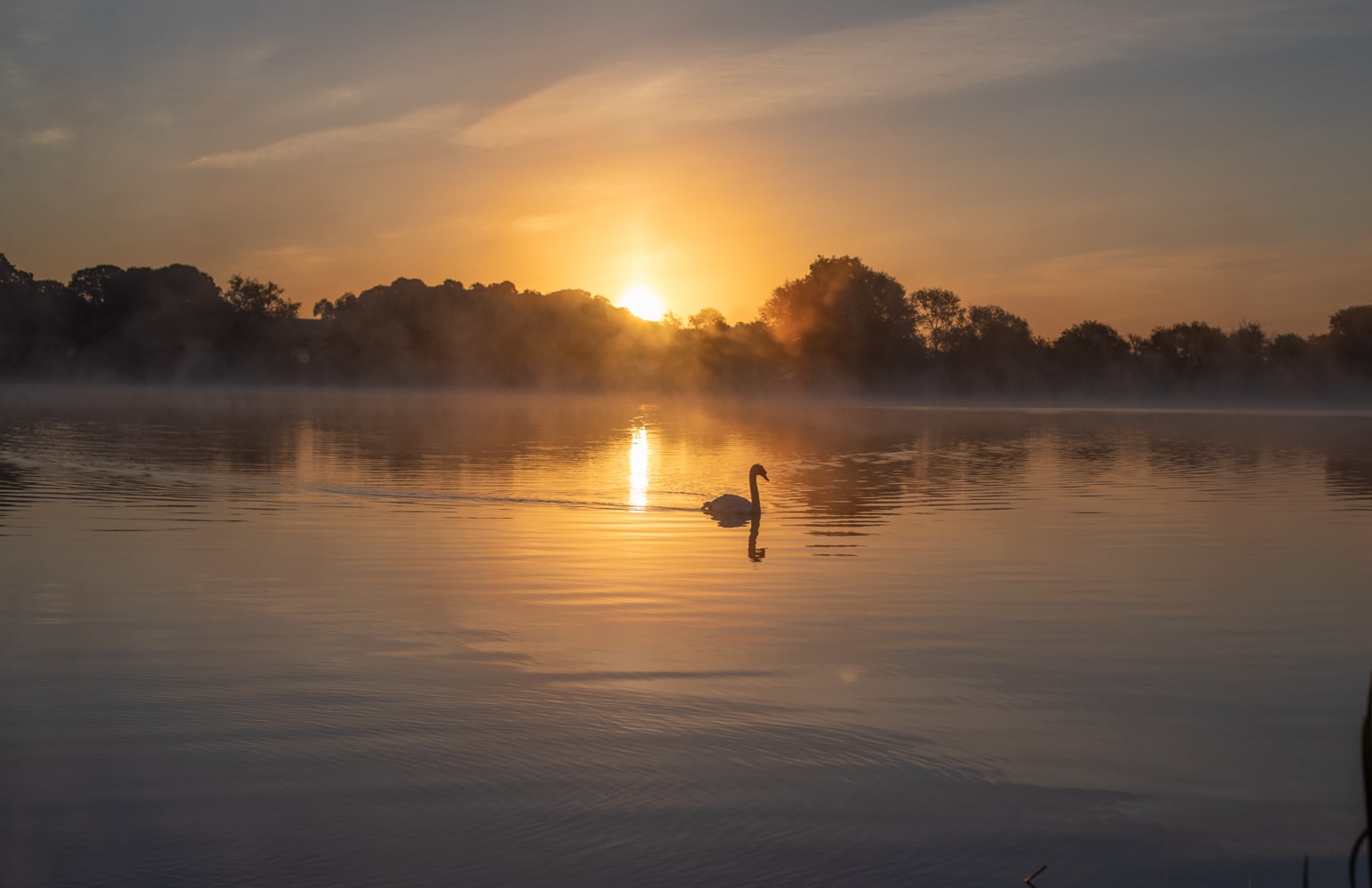

Night Fishing Advantages:
+ Increased Catches: Fish feed with less caution at night, making catches more frequent.
+ Diminished Eyesight of Fish: Fish find it harder to identify anglers' rigs in the dark.
+ Fish Feeding: Fish feed more freely as natural food rises to the surface overnight.
Best Time of Year for Night Fishing
Summer nights in the UK are ideal for night fishing. The milder temperatures and longer twilight hours make the environment more comfortable for both anglers and fish. Summer also brings some species closer to shore, providing additional opportunities for catching that prized specimen.
What is best for fishing at night?
Night fishing in the UK presents a unique and exciting angling experience. However, it demands a thoughtful selection of fishing equipment that goes beyond your standard daytime fishing gear.
To make the most of your nocturnal fishing adventure, consider the following essential items:
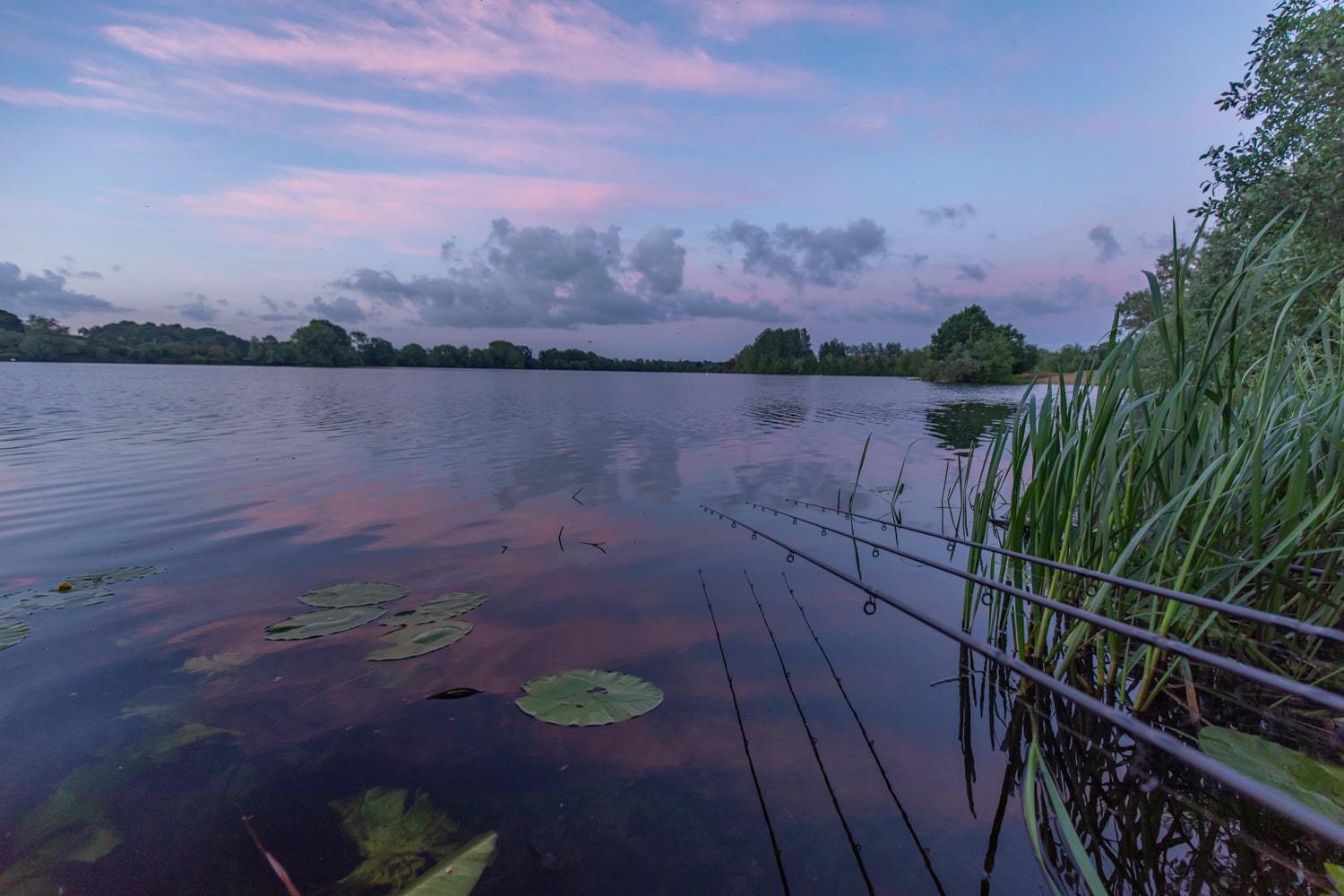

Rod and Reel Selection: Opt for a rod and reel combination that suits both your target species and the fishing environment. Ensure your equipment can handle the size and fighting strength of your desired catch.
Some rods have tips with reflective tape to help monitor when you have a bite. Using a medium-heavy rod with a balanced reel is generally a good starting point.
Lines and Hooks: Carefully choose fishing lines and hooks that are appropriate in size and strength for the species you're pursuing.
The darkness of the night adds an element of surprise. Be sure to pack your most reliable lines and sturdy hooks that can withstand the potential power of your catch.
Consider using a monofilament line with glow-in-the-dark features for night fishing. Specialised night fishing hooks may also provide an edge.
Bait and Lures Selection: Darkness can amplify the senses of fish. Fish become more attuned to scent and movement. Tailor your fishing bait and lures to be strong in scent and meet the preferences of your target fish species. Many anglers find that fishing with live bait like worms or minnows can be especially productive at night.
Lighting: Invest in a high-quality fishing headtorch for a hands-free camping light. This allows you to effortlessly tie knots, bait hooks, and handle your gear. A fully charged head torch and a spare is a must, providing ease, safety, and environmentally-friendly use.
Enhance your chances for a catch with floating or submersible night fishing lights. These can attract fish to your location. Also, pack a bivvy light for your carp fishing bivvy.
Comfortable Attire: Dress in comfortable fishing clothing suitable for the prevailing weather conditions. Layering is essential to regulate your body temperature during the cooler nighttime hours. Be prepared for potential temperature drops and consider waterproof clothing if there's a chance of rain.
Tackle Storage: Night fishing can introduce additional challenges when locating and handling gear. Keep your tackle well-organised and easily accessible. Use fishing tackle boxes or fishing bags with compartments to keep your equipment orderly and within reach.
Bankware for Sleeping: Be sure to select a reliable fishing bivvy or shelter for your venue of choice. Consider the space you need and a pop up bivvy, especially if night fishing alone. When fishing with a buddy, opt for a 2 man bivvy for fishing.
Complete your carp bivvy tent with a fishing bedchair, sleeping bag, and pillow. Add other bivvy accessories like hanging storage, bivvy heaters, bivvy tables and bivvy mats.
Fishing Technology: To ensure a smoother experience, you could bring along navigation tools such as a Fish Finder. Navigating the waters and finding where the fish are can be more challenging after dark.
Another great investment is bite alarms. Find ones with a silence setting or volume adjustment so you can be considerate of nearby anglers.
First Aid Kit: Always have a basic first aid kit on hand. This ensures prompt attention to any bankside injuries. In your kit include some insect bite cream, tweezers and plasters.
Food & Stove: Plan your meals, and remember safety with stoves, using them outside shelters.
Safety Considerations When Night Fishing
Ensuring your safety is paramount when embarking on a night fishing expedition in the UK. It's important to follow these safety tips and practices to make your experience both enjoyable and secure:
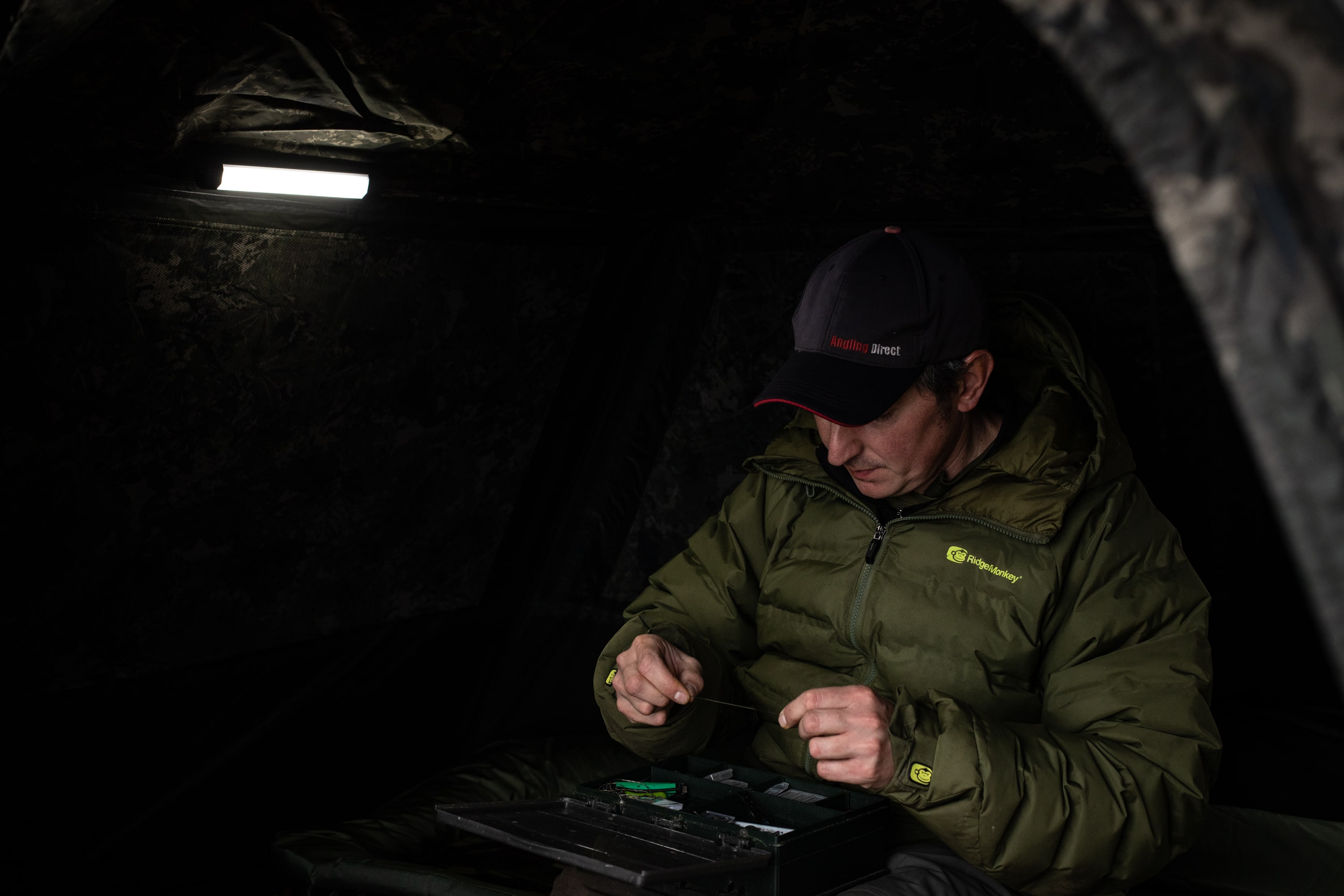

Dress Warm: Consider waterproof and windproof attire if the forecast suggests inclement weather.
Fishing Shoes: Sturdy, comfortable footwear with good traction is essential, especially if you'll be navigating slippery surfaces near water.
Essential Safety Gear: Carry a first aid kit, a fully charged mobile phone and a fishing night light with spare batteries.
Know the Area: Learn the fishing location during daylight hours before attempting night fishing. Recognise potential hazards, such as rocks, steep banks, or underwater obstacles. These may be harder to identify in the dark.
Tell Someone: Always inform a friend or family member about your fishing plans, including your intended location and estimated return time.
Stay Hydrated and Nourished: Fishing in the dark can be physically demanding. In your fishing cool bag, bring sufficient water and snacks to stay hydrated and maintain energy levels.
Night Lighting: Illuminate your surroundings with proper lighting so you can reduce the risk of accidents. Use red lights to avoid scaring fish, deter insects and keep your swim well-lit.
Maintain Distance: If fishing near others, cast straight to avoid entanglements and maintain personal space.
Be Mindful of Wildlife: Nighttime is when many creatures are active, both in the water and on land. Try to avoid disturbing local wildlife and their habits.
Be Cautious Near Water: Approach the water's edge carefully. Be cautious with steep banks or uneven terrain. Slippery surfaces and sudden drops can also pose a threat when fishing in the dark.
Noise Levels: Keep noise levels to a minimum to avoid startling wildlife and disturbing other anglers or campers in the area.
Respect Fishing Regulations: Abide by local fishing regulations, like fish size and catch limits.
Your safety when fishing should always remain a top priority. Make the most of your time on the water, even under the cover of darkness.
Night Fishing Near Me
Discover prime night fishing lakes and rivers across the UK, blending popular and hidden gems. Choose your location wisely:
- Thames River, London: Iconic urban night fishing with diverse species and stunning cityscapes.
- Lake Windermere, Lake District: Tranquil and productive, offering a variety of fish species.
- Norfolk Broads, East England: Peaceful rivers and broads hosting specimen fish like perch and bream.
- River Trent, England: Target species like barbel, chub, and pike, creating an angling experience under the moonlit skies.
- Peak District Reservoirs, England: Pristine landscapes and excellent fishing for carp at night. Also its great for trout fishing after sundown.
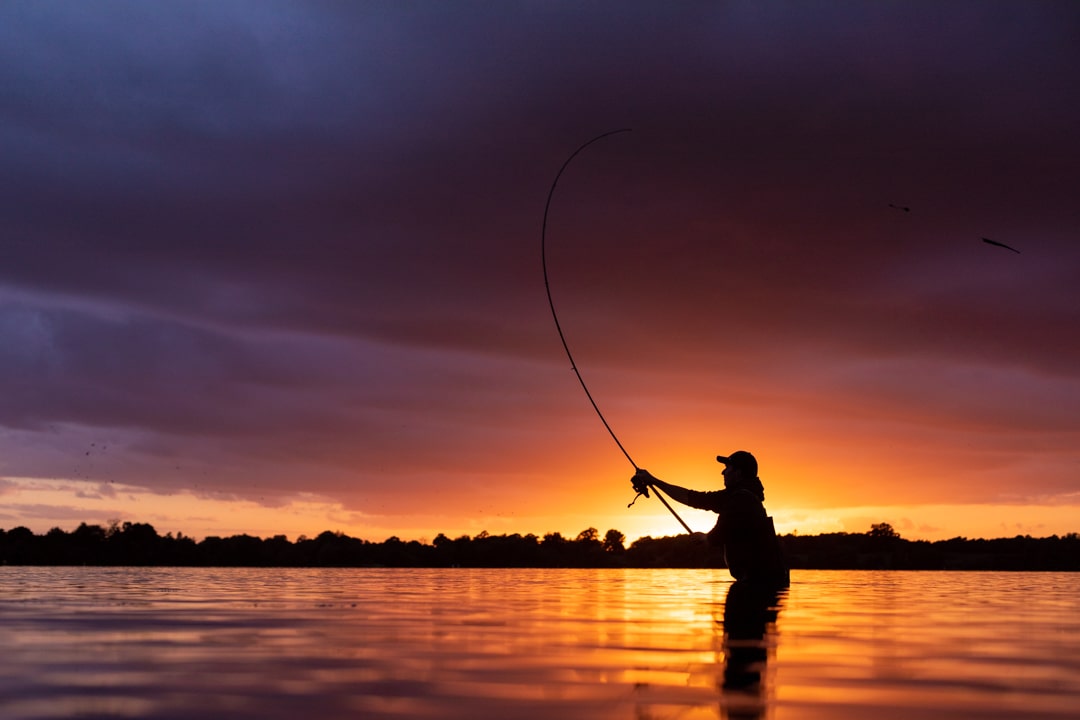

When scouting, consider safety, access, and fish activity. Ensure the spot aligns with your angling aspirations for a great night fishing experience.
The UK offers a multitude of fishing locations suitable for nighttime angling. For a more secluded experience, consider researching local hidden gems. Look for areas with calm waters, good access, and known fish activity. Be sure to pop to your local fishing tackle shop for more night fishing venue suggestions near you.
What Fish Do You Catch at Night?
Nighttime angling in the UK opens up opportunities to target various fish species that are active during the dark hours.
Perch
- Lures: Employ large, noisy lures like jerk baits or soft plastics to attract perch through their sense of vibration and movement.
- Retrieval: Use a slow and erratic retrieve to mimic injured prey. Perch are ambush predators, and this technique can trigger their predatory instincts.
- Depth: Fish in shallower waters near drop-offs, weed beds, and structures where perch might be lurking.
Tench
- Baits: Natural baits like maggots, worms, and sweetcorn work well. Tench are sensitive to taste. Lured them with fresh offerings.
- Tench Tackle: Use light to medium tackle with a sensitive bite indicator. Tench often nibble gently, so detecting bites is crucial.
- Feeding Areas: Fish close to weed beds, lily pads, or areas with aquatic vegetation where tench feed.
Common Carp & Mirror Carp
- Baits: Use sweet and aromatic baits like boilies, corn, and bread. Carp have a keen sense of smell, making these baits enticing.
- Rig Setup: Opt for a simple rig like the "hair rig" with a pop-up bait. This carp fishing rig setup reduces the risk of detection by cautious carp.
- Carp night fishing near me: Carp often patrol the margins and shallower areas at night. Cast near features like overhanging trees or lily pads where they seek shelter when carp fishing at night.
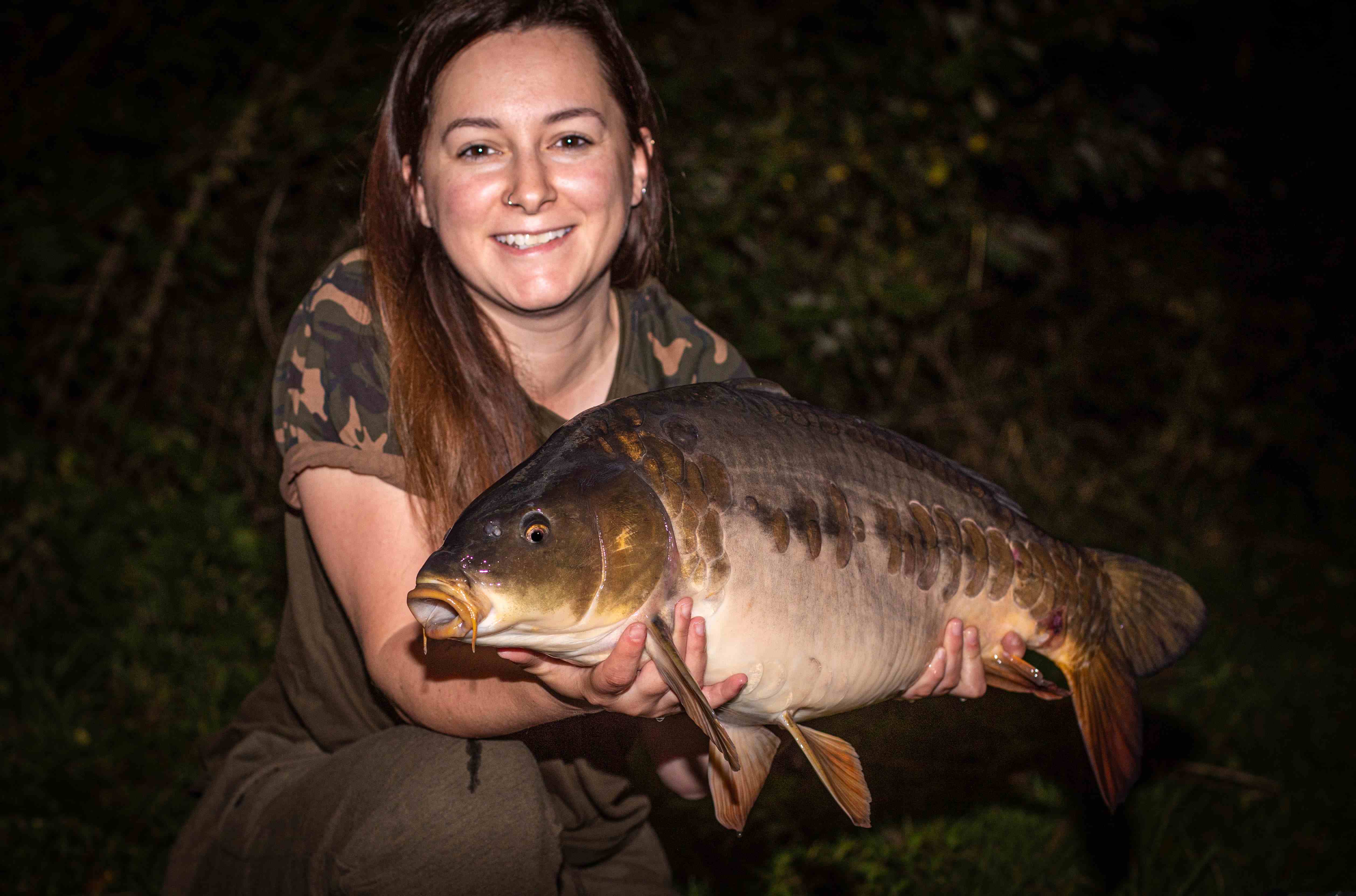

Bream
- Groundbait: Prebait the area with groundbait and pellets to attract bream. They tend to feed over a baited area.
- Baits: Present sweet and soft baits like corn, maggots, or worms. Bream have a preference for such offerings.
- Fishing Depth: Set your rig to fish on the lake bed, as bream usually feed along the bottom.
Remember, night fishing demands patience and a strategic approach. Use subtle lighting to aid your setup and casting, and always be cautious of your surroundings.
Can I night fish the sea?
You can enjoy night fishing along the seashore for species like sea bass and flounder. Put safety first, research tide times, use scented baits or lures, and follow local regulations. Make the most of your rewarding beach fishing experience. If you are sea fishing at night, take caution as the tide can be dangerous.
Understanding the behaviour of fish species in UK waters will significantly enhance your chances of a successful night fishing adventure.
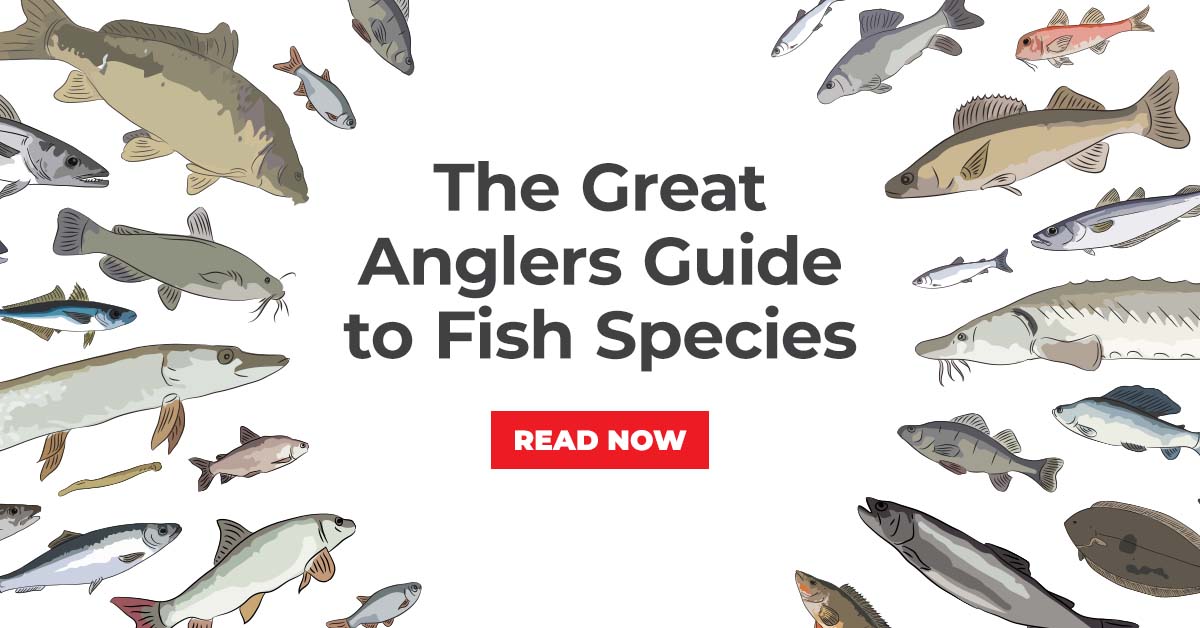

What time of year is best for night fishing?
Night fishing can be effective at different times of the year. It's often most productive during the warmer months when fish are more actively feeding at night. This typically includes late spring, summer, and early fall.
Maximize your night fishing success by understanding the impact of moon phases, weather, and water conditions on fish behaviour. Use these insights to your advantage:
1. Moon Phases: New and full moons mean less moonlight, ideal for predatory fish hunting by other senses. First and last quarter moons offer more light, encouraging fish to feed and explore.
2. Weather: Warmer nights trigger a fish’s activity, while pressure changes affect feeding. Cloudy skies and rain make fish feel safe, so fish near structures.
3. Water: Know your species' preferred temperature range. Adapt bait and lures based on water clarity. Target transition zones and structures.
4. Strategy: Time your trips for optimal conditions. Tailor bait selection, focus on transition zones, and be adaptable for real-time adjustments.
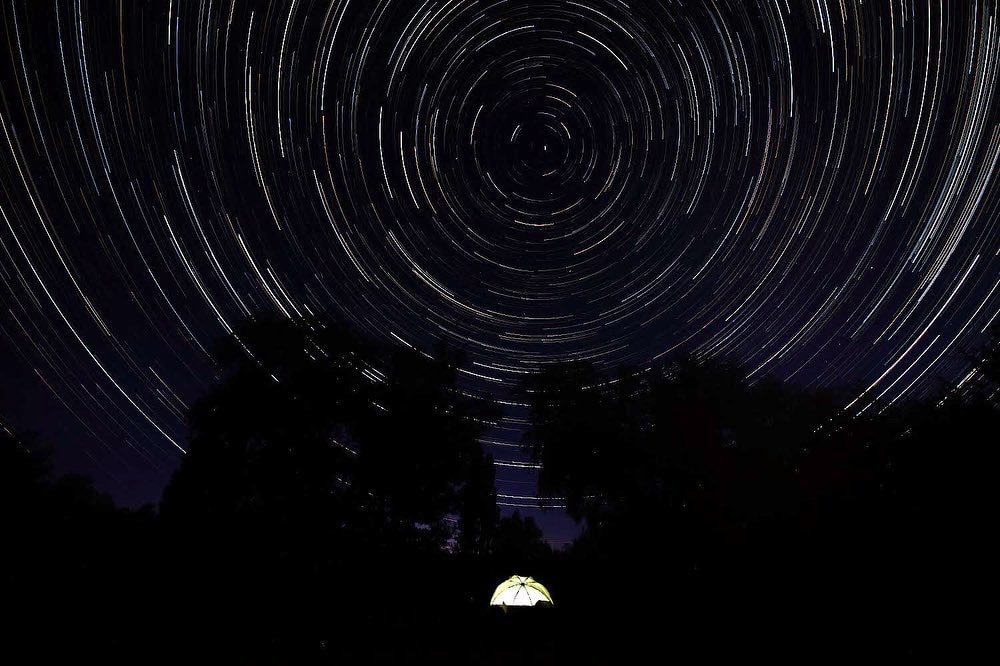

How do you catch more fish at night?
While day fishing might be about finesse and skill, night fishing often requires a bit more of a strategic touch. Here are some pointers:
1. Choosing a spot: Identify carp habits to predict the best spots for carp night fishing. Listen for signs of fish if you arrive in the dark.
2. Baiting: Provide enough bait for just one fish bite at a time. Use PVA bags, or top up the spot with Spombs/spods after each fish.
Be mindful of accuracy. Fish rely more on scent and taste at night. A bit of smelly cheese can go a long way in attracting a hungry carp.
3. Preparation and organisation: Organise your space and have pre-tied rigs and other items ready. Keep a clear mental plan for dealing with a bite, especially in tricky spots.
4. Equipment: Choose appropriate shelter, comfortable sleeping arrangements, food, and drinks, and keep spare clothes handy.
5. Catch pictures: Get the right background and angle for photos, and diffuse harsh flash.
6. Let there be light: Invest in a good headtorch for easy task management. Keep larger torches handy for accurate casts but be mindful of using them too much.
From small glow sticks to USB-rechargeable torches, lighting is essential for the orientation and awareness of your rods.
7. Fishing, not camping: Be ready to move swims if a better opportunity arises. Put effort into fishing rather than camping for the best rewards.
8. Evening sessions: Short evening sessions can be very productive, especially in rivers and canals. Stay stealthy, avoid too much light, and focus on quick bites.
9. Go with a mate: Fishing with a friend provides safety, support, and extra hands for tasks like photography.
10. Go Slow: Slower movements can help to get fish biting.
11. Rig Up Early: Preferably the day before, rig up your rods and organize your tackle. It saves you time and stress on the actual night.
12. Dress Accordingly: Consider waterproof jackets, fleece jackets, down jackets, and puffers to cope with the cold or wet weather.
13. Check the Weather: Weather forecasting apps or websites can guide you on what to expect on a fishing trip. Don't forget life vests and signalling devices if you're fishing on a boat.
14. Use Bank Markers: Large, silhouetted objects, like trees, can help you cast to the same spot even in the dark
Can you night fish in the UK?
In the UK, you can fish at night, but you must adhere to the regulations of the fishing location. Some fisheries may require a special permit or night fishing ticket. Some areas have restrictions on the type of fishing you can do. Keep this in mind when planning a night fishing trip.
It's advisable to check with local authorities or fishery managers to understand the rules at your venue of choice
Night Fishing Etiquette
1. Environmental Care: Keep the environment clean, avoid damage, and properly dispose of waste.
2. Noise Awareness: Maintain a quiet atmosphere to respect wildlife and other anglers.
3. Catch and Release: Handle fish gently and follow catch-and-release best practices.
4. Licenses: Obtain the right fishing license for your location.
5. Catch Limits: Follow species-specific catch limits and size rules.
6. Protected Areas: Be sure to only fish where permitted.
7. Special Rules: Check your fishery or fishing club's rules around night fishing, rod rules, baits and more.
8. Permits: Get necessary permits for private or club waters.
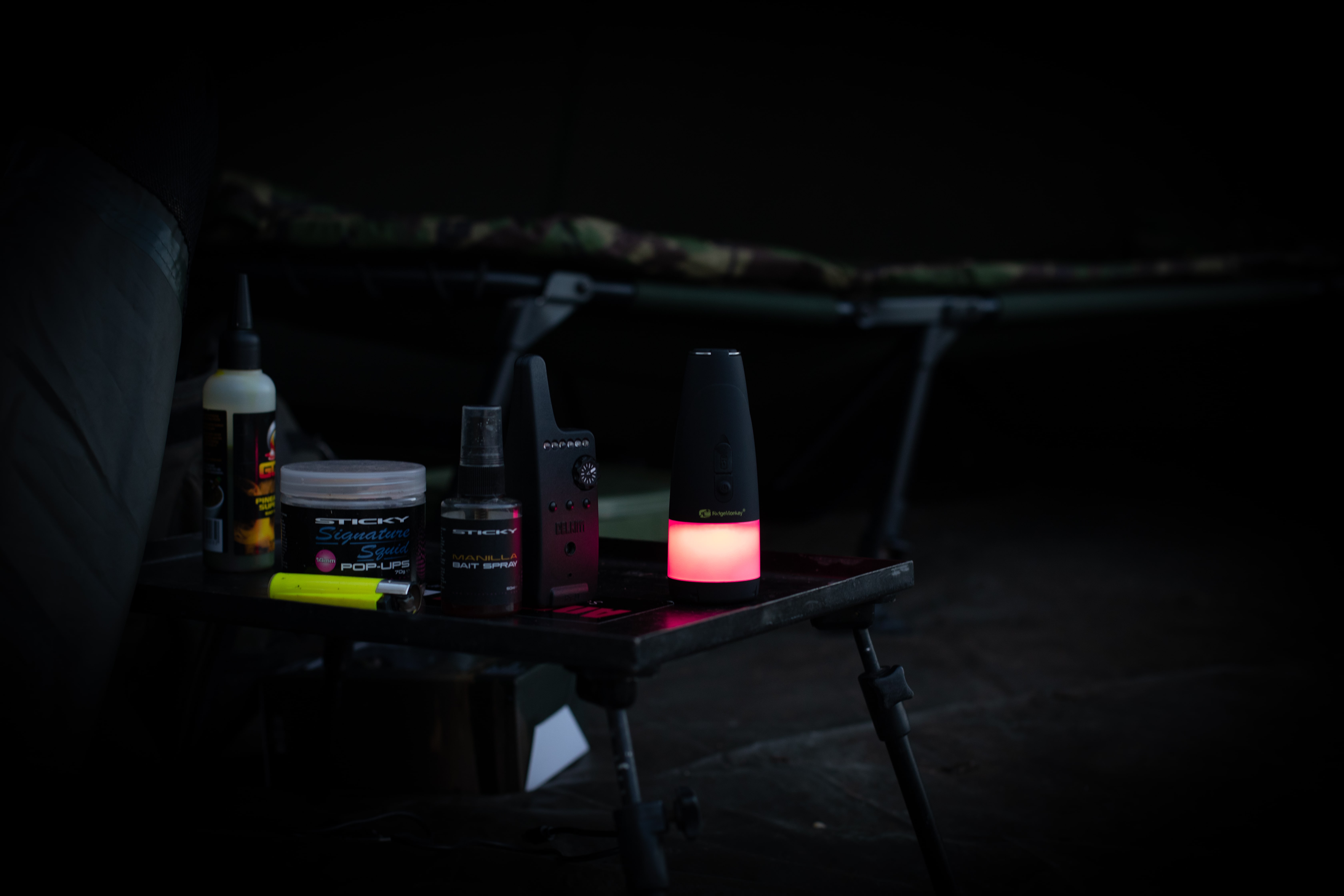

Summer night fishing in the UK offers an unparalleled experience for those seeking a unique adventure or a new angling challenge. With the right equipment, knowledge, and respect for the environment, night fishing can become a wonderful summer tradition.
Whether you're a seasoned day angler looking to expand your horizons or a complete beginner, night fishing offers something for everyone. Take your time, enjoy the sounds of the night, and who knows, you may just hook the catch of a lifetime!
FAQs on Night Fishing
Can fish see in the dark?
Many fish species have the ability to see in low-light conditions or even complete darkness. They may have special cells in their eyes that allow them to detect even minimal amounts of light. Others might rely more on other senses, like smell or lateral line sensitivity, to detect prey or navigate in the dark.
What is a buzzbait?
A buzzbait is a type of fishing lure. It creates a buzzing sound when retrieved across the water's surface.
It typically has a propeller-like blade that spins and causes the noise, attracting predatory fish, particularly bass. It can be very effective in various conditions, including low light or at night.
Can you lure fish at night?
Yes, you can lure fish at night using various types of lures, including those specifically designed for night fishing. As mentioned earlier, lures like buzzbaits that create vibrations or noise can be particularly effective. Many anglers also use lures with glow-in-the-dark or reflective features to attract fish in low-light conditions.
How do you fish a jig at night?
Fish a jig at night by casting it near structures or drop-offs, then slowly retrieve it with occasional pauses. Use dark-coloured jigs with contrasting trailers, and rely on tactile sensations to detect bites in low-light conditions.
Why do you need green lights for night fishing?
Used in night fishing, green lights attract baitfish. This is ideal when predator fishing. The green wavelength penetrates water better than other colours, making it more effective in luring fish.
Can you night fish rivers UK?
You can night fishing in rivers in the UK. This offers a unique angling experience for various species. Check local regulations and focus on safety measures for an enjoyable outing.
What bait is best for night shore fishing?
For night shore fishing, use natural baits. Opt for marine worms, strips of baitfish, or shrimp for optimal success in attracting a variety of nocturnal fish species.

